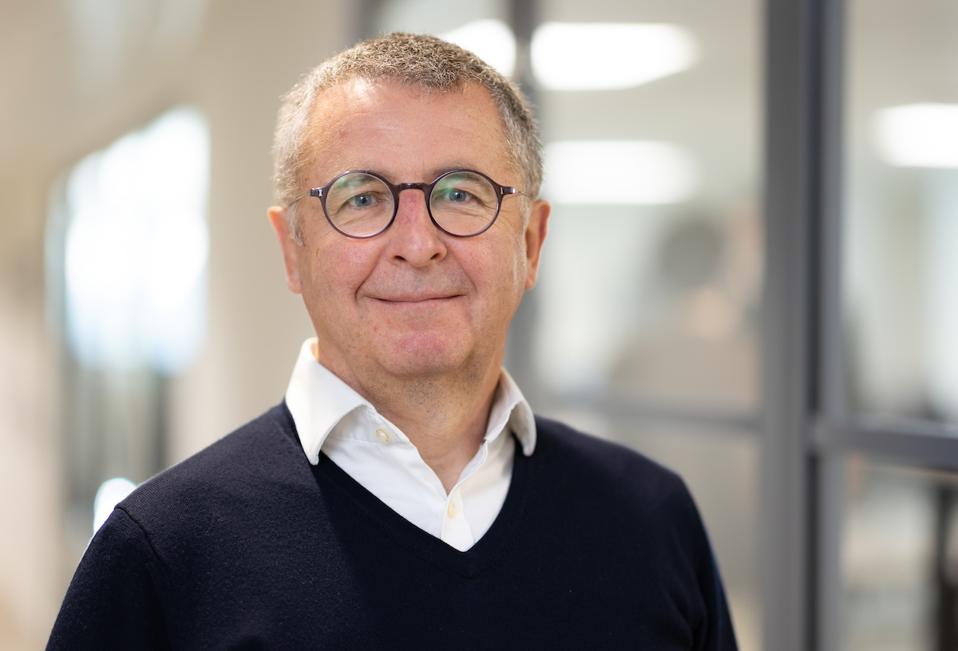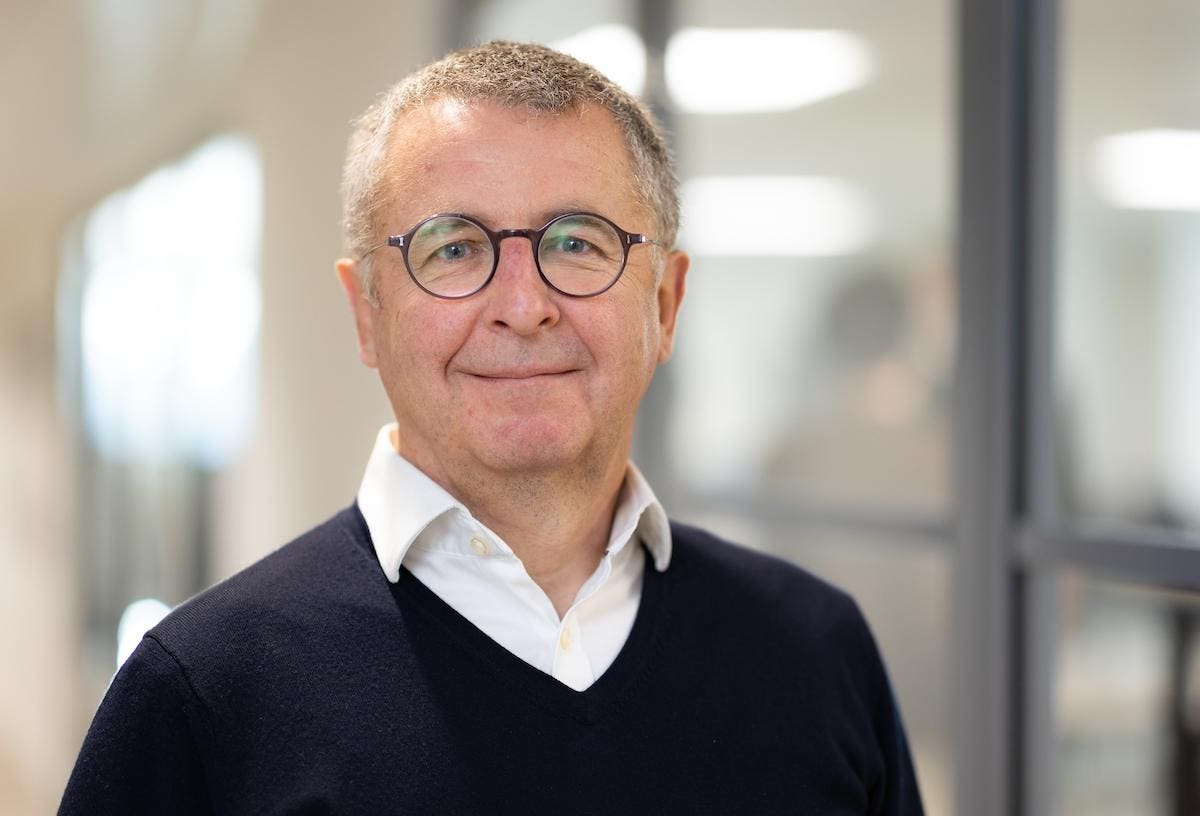
David Roblin, CEO of Relation Therapeutic says large companies can find rapid innovation challenging
Relation Therapeutics
Partnerships and collaborations provide an important means for life sciences and healthtech startups to validate their technologies, secure financial backing and navigate a route to market. London, with its concentration of teaching hospitals, universities and research institutions, all sitting in close proximity to local and global VC firm headquarters, may be well placed to nurture the next generation of health innovators. The challenge is to make the most of the existing ecosystem.
When it comes down to raising VC finance, Britain’s healthtech and life sciences startups are doing rather well. Witness the last set of quarterly figures published by HSBC Innovation Banking and Dealroom. According to the data, healthtech businesses raised $1.8 billion in the first three months of this year, the largest sum since the second quarter of 2021. More than half the money raised went to businesses developing AI solutions.
And the government is playing its part in boosting the sector. For instance, earlier this year, Finance Minister Rachel Reeves announced a £29 billion boost for Britain’s National Health Service, with £10 billion of that earmarked for investment in new technologies. To underline that point, an initiative dubbed the Innovator Passport will allow digital solutions tested in one health organisation to be rolled out across others without further checks. This could be hugely important in the U.K., where the national health system is administered locally through trusts that tend to work independently of each other. It’s all part of a “Modern Industrial Strategy” plan aimed at helping the U.K. to become a “world leader” in health-related technologies.
All well and good, but small life sciences and healthtech companies still face the challenge of proving the efficacy of their solutions and also demonstrating how they can be integrated into existing clinical systems.
The Partnership Solution
One way forward for technology-led startups is to partner with bigger players that can provide resources and access to markets that might otherwise be out of reach.
David Roblin is CEO and co-founder of Relation Therapeutics, a company that is collaborating with pharmaceutical giant GSK on developing treatments for osteoarthritis and fibrosis. As he explains, the company was established to bring together people from disparate scientific disciplines and working backgrounds, with the aim of developing an interdisciplinary approach to drug discovery. In practical terms this means that biologists working in the field of genomics, cells and tissues are working alongside experts in machine learning and R&D.
As Roblin sees it, the collaboration is helping partner GSK to develop treatments for the targeted illnesses more quickly than would otherwise be the case.
“Trying to innovate in a big company with established processes is quite a challenge,” says Roblin. “GSK had all the elements but they didn’t have the blank sheet of paper to bring the technologies to bear at the right time and at the right pace.”
In return, he says, the relationship with GSK has enhanced Relation Therapeutics’ profile and credibility. Indeed, Roblin says the deal played an important part in helping his business secure a $65 million Seed round.
“The collaboration was quite important in closing the seed round. GSK brought cash, validation and they also brought ideas and a deep understanding of the diseases,” he says,
Every partnership is different in terms of the benefits it delivers. Pangaea Data is a U.K.-based company that has developed a platform that can help clinicians identify hard-to-diagnose diseases. This is achieved by using AI to analyse patient symptoms mapped against models created using existing clinical guidelines. The company says the platform has been used to accelerate diagnoses across 42 conditions.
Last month, Pangaea Data announced a partnership with AstraZeneca-owned Alexion Pharmaceuticals. Under the arrangement, Pangaea will configure its platform to detect Hypophosphatisia (HPP), a bone-softening genetic disorder.
So what does the collaboration deliver? Well as co-founder Vibhor Gupta acknowledges, once a technology solution has been developed, the challenge is to find a pathway through which the product can be introduced to health systems.
“There is the question of who will pay for it,” he says. “That’s why the partnership with Alexion is important. They have a treatment for HPP. We can use the partnership to allow health systems to identify patients who are hiding in plain sight.
In other words, there is a symbiosis. Alexion has a treatment for the condition. Pangaea provides a means to find patients who are currently undiagnosed and thus slipping through the treatment net.
As Gupta explains, pharmaceutical companies are solutions-driven. “They don’t necessarily have all the data they need – health systems have that – but what they do possess is the motivation to close care gaps and get patients to the right treatment or trials,” he says.”
A Collaborative Ecosystem
The benefits of collaboration extend far beyond commercial relationships between two companies. For instance, there may also be opportunities for life sciences and health-tech startups to work with universities and research institutes, sharing labs, resources and expertise.
This kind of collaboration can be arranged and orchestrated across countries and continents if need be, but it can be – to say the least – helpful if potential partners are situated within walking distance of each other and perhaps meeting regularly at the same events.
That’s the view of Mike Wiseman, Head of Campuses, at business space provider British Land. Included in his company’s portfolio is Regents Place, a mix of labs and office spaces situated on London’s Euston Road, an area increasingly referred to as the Knowledge Quarter.
As Wiseman points out, the district is home to Meta, Google and Deepmind, along with the Francis Crick medical research institute, The Alan Turing Institute (data and AI) , the University of London and a host of science and technology companies. British Land is positioning Regents Place as a campus for AI and health technology.
“We have a community of likeminded people. Some of the most exciting advances in science are at the intersection of different disciplines and we can facilitate that through spaces and events,” says Wiseman.
To that end, the company has signed a memo of understanding to work with the University of London on events and there is also an arrangement with the Crick Institute that allows startups from Regents to share lab facilities.
Wiseman says this bodes well for the future. London still lags Boston as a health tech and life sciences hub but the building blocks are in place. As he points out, in addition to possible collaborators, regulators and investors are also close at hand. “You also have access to patients through the NHS and the private clinics of Harley Street. There are very few places like this,” he adds. Another complex, Triton Square. is due to open shortly.
There is a bigger picture. London is part of the so-called Golden Triangle that also includes Oxford and Cambridge and there is collaboration not just within but between cities. However, startups are likely to benefit from being in proximity to sources of support.
